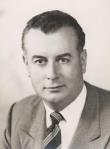Born: Established: 11 Jul 1916 Kew, Camberwell - Kew area, Melbourne - Inner South, Melbourne, Victoria, ; Died: Ceased: 21 Oct 2014
Gender:
Male

 2459201087681901700.jpg
2459201087681901700.jpg